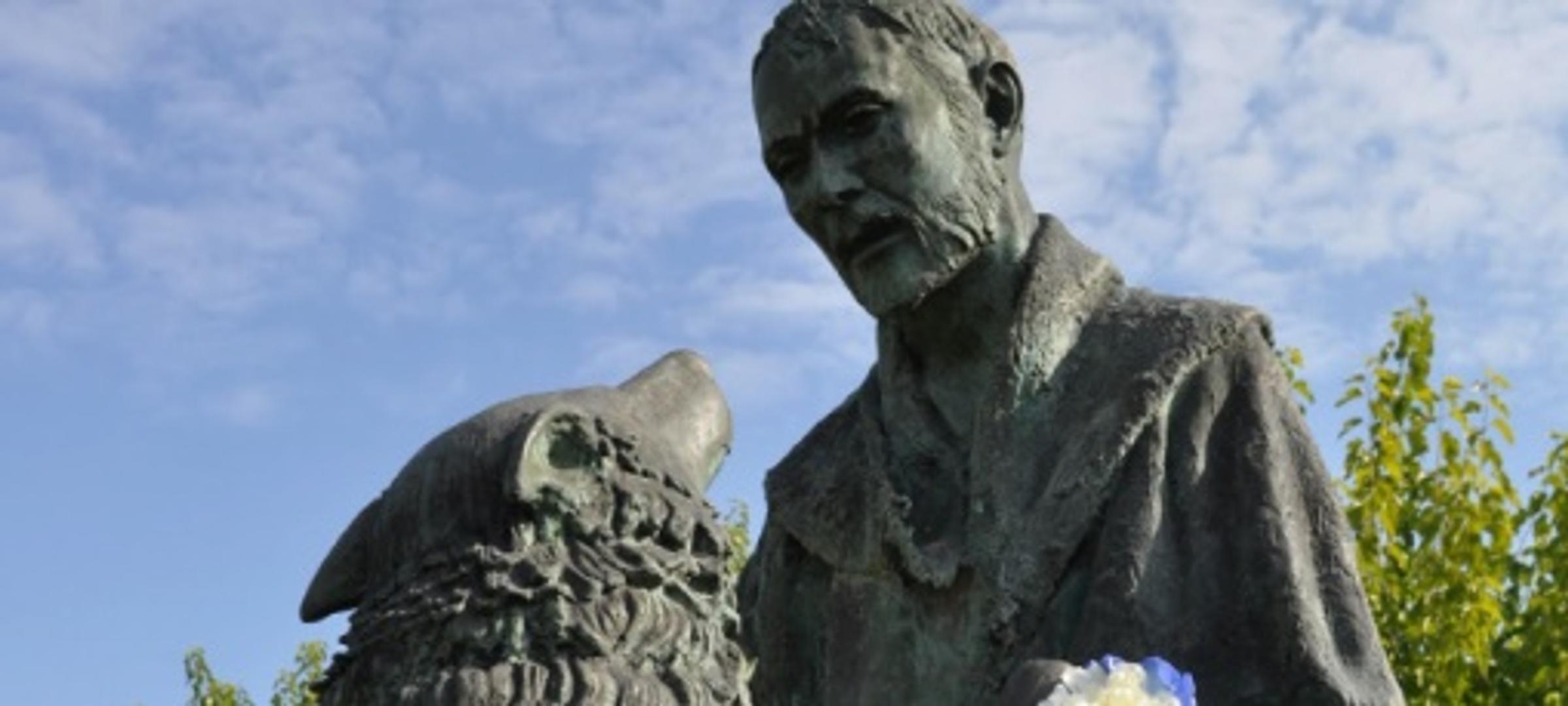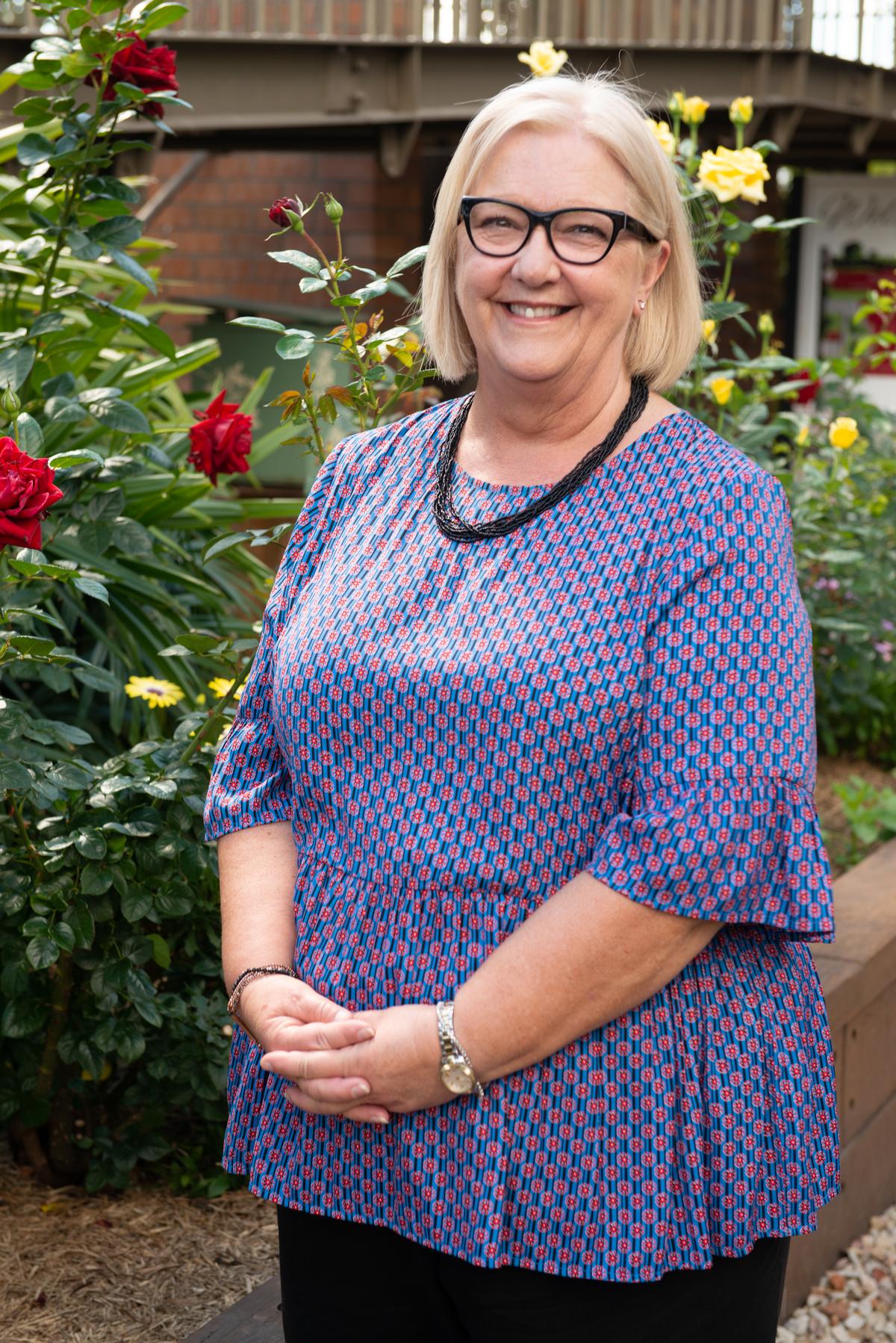Learning Area Advisor - Religious Education

Everyone loves a good story and our curriculum in Religious Education is a rich bed of stories – some interwoven with the lessons that our master storyteller relates through scripture in the New Testament, and some from life experiences that hold meaning for readers.
2021 has started well for teachers and students of Religious Education. As Week 7 draws to a close, perhaps it is time to sit back, relax for a few minutes, and enjoy a story or two woven into the Teaching and Learning of Religion at Mount Alvernia.
As the newest members of our College community, the Year 7 students are becoming immersed in the belief statements of our faith tradition and becoming familiar with our Franciscan charism through stories about St Francis. He is our role model - along with St Clare and Elizabeth Hayes - showing us how best to live in the footsteps of Jesus. One of the loveliest yet also powerful stories of Francis is his encounter with Gubbio, the wolf.
"The story of the saint and the wolf is that the wolf terrorised the inhabitants of the small Italian town of Gubbio. Not only did the wolf kill and devour livestock but it began to attack and devour humans. All attempts to kill the wolf failed and the people of the town would literally shut the town down in fear whenever the wolf would appear. St Francis heard of this and decided to go and meet the wolf. The huge wolf rushed toward Francis as soon as he saw the saint approaching his lair. St Francis made the sign of the cross and commanded the wolf in the name of God to stop his terrorising of the town. Immediately, the wolf became docile before the saint. Francis went on to condemn the wolf for his attacks, not just on animals but upon men and women who are made in the image of God. Francis told the wolf that, if he ended his attacks, he would see to it that the inhabitants of Gubbio would provide him with the food he needed. The story goes that the wolf placed his paw in Francis’s hand in agreement. Francis then walked the docile wolf back into the main square of Gubbio to the astonishment of the inhabitants and there reiterated the promise. Again, the wolf placed his paw in the saint’s hand in agreement. The saint had tamed the wolf."
A New Heart for a New World in Year 9 this term addresses the co-existence of good and evil and the potential for conversion and healing in the human experience. This unit is rich in scripture narrative searching for willing followers to commit to a life of faith-filled dedication to enjoy and admire the pathways down which Jesus leads us - through the trials, temptations, and traps that ‘evil’ attracts. We explore how to ‘come out on top’; to be the best person we can be with powerful scripture such as Jesus Heals the Man Born Blind - John 9, Two Sons and a Father (The Prodigal Son) – Luke 15:11-32, Jesus in the Wilderness – Matthew 4:1-11, and The Final Judgement, which we in Year 9 affectionately call: So What’s With the Sheep and Goats? Matthew 25:31-46.
However, I think I must be drawn to stories about wolves. I’m sure that my first impressions come from the appearances of the Big Bad Wolf to Little Red Riding Hood as well as the menacing wolf well-portrayed in Walt Disney’s Three Little Pigs! However, my very best, favourite ‘wolf’ story is central to our theme of ‘good versus evil’ – the story of The Two Wolves. It’s a simple story with a wealth of meaning – enjoy.
Let’s conclude this short time of relaxation with impact! (No – there are no more wolves involved!) Year 12 Religion & Ethics students are exploring how religions work to be relevant in contemporary culture. How is religion expressed in contemporary culture? Has globalisation, technology, or advertising had a positive or negative bearing on religions in contemporary society? The students have been searching and researching where religion can be found in contemporary culture.
Pope Francis spoke stirringly to the youth in Rio de Janeiro in 2013 when he denounced the ‘poison’ of consumerism in contemporary culture. He said that young people are particularly sensitive to the emptiness of meaning and values that surrounds them and, unfortunately, they pay the consequences. However, in the great family that is the Church there is a solution. He explained that the Church fills the heart with joy because it fills it with a profound goodness that does not pass away. Despite the vanity of ‘having’, of preparing only for wealth, Pope Francis told us that true wealth is the love of our God shared with others and helping others. Powerful words to a congregation of thousands of young people, who came together simply to show how they live their faith in an all-consuming, material society. They are our future leaders – just as our Year 12s are our future – leading the way as contemporary ‘saints’ in a challenging world.
Where is the story you ask? I will conclude with a short reflective poem, used by Pope Francis, but not – in this instance – his original work. It is said to be inspired by Blessed Pope John Paul II. I love the simplicity of it – something that our role models in Jesus, Saint Francis, and Pope Francis show in their words and actions.
"We need saints without cassocks, without veils – we need saints with jeans and tennis shoes.
We need saints that go to the movies that listen to music, that hang out with their friends.
We need saints that place God in first place ahead of succeeding in any career.
We need saints that look for time to pray every day and who know how to be in love with purity, chastity, and all good things.
We need saints – saints for the 21st century with a spirituality appropriate to our new time.
We need saints that have a commitment to helping the poor and to make the needed social change.
We need saints to live in the world, to sanctify the world and to not be afraid of living in the world by their presence in it.
We need saints who drink Coca-Cola, who eat hot dogs, who surf the internet, and who listen to their iPods.
We need saints that love the Eucharist, that are not afraid or embarrassed to eat a pizza or drink a beer with their friends.
We need saints who love the movies, dance, sport, theatre.
We need saints who are open, sociable, normal, happy companions.
We need saints who are in this world and who know how to enjoy the best in this world without being callous or mundane.
We need saints."
I hope you have enjoyed a few minutes and gentle relaxation. I’ve enjoyed sharing it with you.
Denise Shaw



